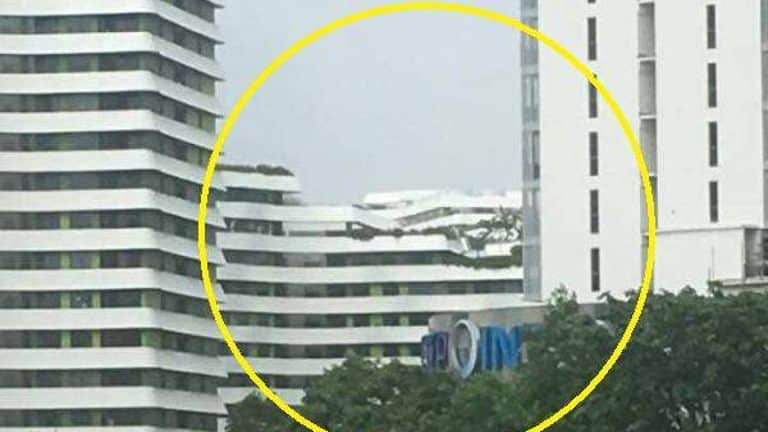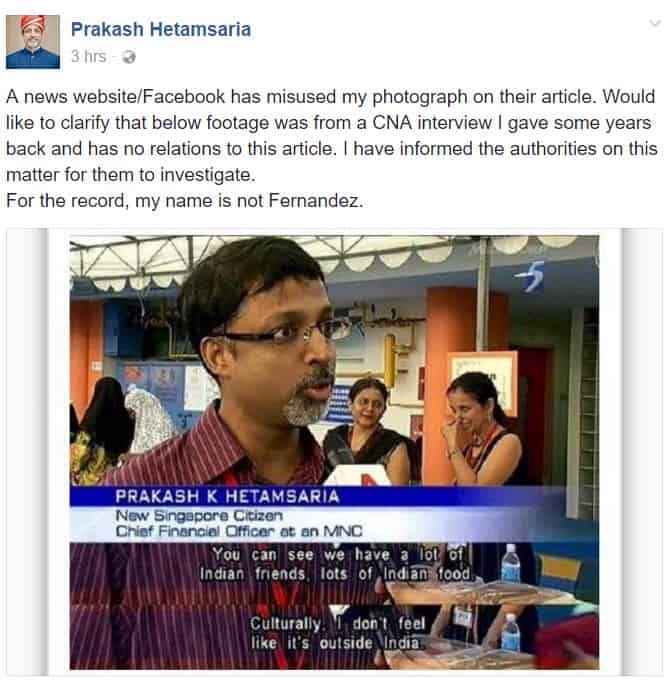Fake news exists “all because some nasty people seek to profit from this.”
While there were a ton of ‘fake news’ circling the internet on 1st April, it seems like Singapore has had her fair share of hoaxes spread around on a regular basis – and the Government is going to put a stop to it.
Remember the fake news about Fairprice’s “plastic rice” making its rounds on WhatsApp and the internet? Fake.
Or, when the police and SCDF were deployed to Punggol to investigate reports on a collapsing roof by All Singapore Stuff? Yes, fake.
And finally, another fishy report, again, by All Singapore Stuff claiming a Luohan fish had been fried for dinner. Again, fake.
This just goes to show that we shouldn’t be so gullible and ready to believe every single thing we see online.
Countries like the US and Germany have already announced tougher laws to counter fake news, with Germany coming up with a laws that require social networks to remove fake news and failure to do so may result in fines of up to €50 million (S$75 million).
And Singapore is now doing the same.
Word Travels Fast, But Now With The Internet, It Travels Even Faster
Minister of Law K Shanmugam said in Parliament on Monday (Apr 3) that “Under our current law, there are limited remedies to deal with these falsehoods.”
He cited an example that despite it being an offence under the Telecommunications Act to send false messages around, the “remedies are ineffective” and is not meant for the new digital age.
He added that “the circulation of falsehoods can grow viral today very quickly, and so we need to do more.”
Severe Consequences
While fake news is a problem for Singapore, it has not yet threatened the safety and harmony of our country. But, the same cannot be said elsewhere in the world.
An example of a tragic consequence as a result of false news, was when a man entered a pizza restaurant and opened fire with an assault rifle, after believing a hoax that Hilary Clinton was operating a child sex abuse ring there.
“Hoaxes like these can have real world consequences,” Mr Shanmugam said.
“If not quickly corrected, they can cause harm to Singaporeans, alarm to public, emergency resources will have to be diverted, and reputations of businesses and people can be completely, unreasonably, unfairly damaged.
“All because some nasty people seek to profit from this.”
Bata’s was a victim of fake news this year. According to Straits Times, the Swiss-based company Bata said it lost more than S$158,000 within a month after fake news circulated online, claiming it sold shoes with the Arabic word for “Allah” or God on the soles.
Even the reputation of innocent citizens can be tarnished because of fake news.
On Nov 22 last year, All Singapore Stuff published an article: “S’pore new citizen feels cheated, now wants his old citizenship back” and misused a photo of a man unrelated to the article whom they named “Fernandez”.
“Fernandez”, whose real name is Prakash Hetamsaria wrote on his Facebook that “many have made racist remarks which were absolutely uncalled for. These comments and probably fake news article affected my family and especially my children.”
Moral of the story?
Don’t trust everything you read online – especially not from sites who have time after time been called out for publishing fake news. And good thing that the Singapore government is finally planning to take action to curb this insidious trend.























